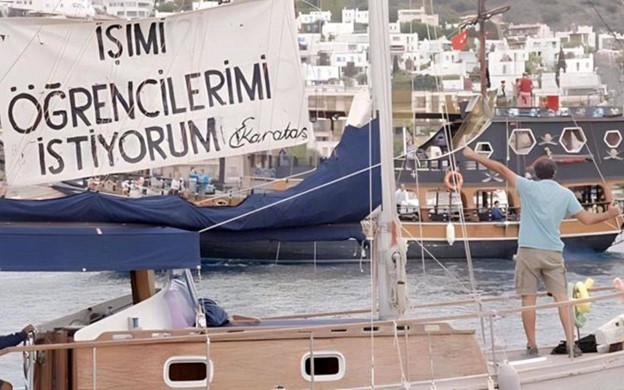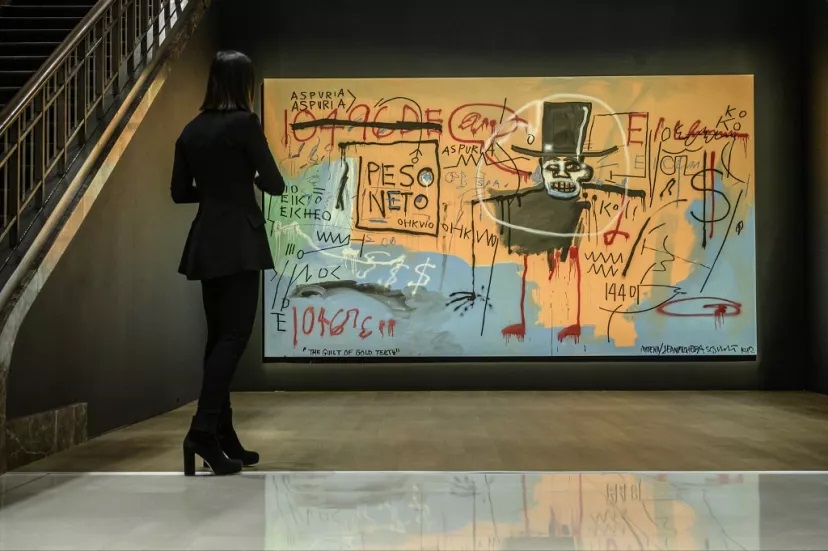The year 2023 was a dangerous year for artists and anyone who voiced their views on wars and politics, or even made fun of the powerful, according to the State of Artistic Freedom report published this week by Freemuse.
Freemuse, an international organisation founded in 1998 with headquarters in Copenhagen, monitors artistic freedom and publishes annual reports on its state. Artistic freedom falls under the broad remit of freedom of expression and is a fundamental human right, protected in several international and European conventions.
Contrary to previous reports, which included statistical data on violations of artistic freedom on global and national level, the 2024 report lacks comprehensive data. Available statistics is uncertain and shows only the tip of the iceberg, Norwegian film director and human rights defender Sverre Pedersen, chair of Freemuse, told The Brussels Times.
Monitoring and documenting the state of artistic freedom is a challenge, especially in authoritarian countries, where threats to artistic freedom fall under the radar and are not reported because of lack of media freedom. Freemuse is developing methods to ensure the quality of its data for next reports.
“There are situations where there may be no direct bans but a self-censorship reflex responding to fears of losing grants, nominations for awards, and access to performance space,” he explained. “Physical threat by non-government actors, media smears, and a social media backlash can also impact the capacity to continue artistic work.”
The trends are unfortunately clear and worrying. “As a consequence of polarisation, a rise of fundamentalism and extremism, an increase in authoritarian regimes and attacks on democratic values and human rights, we see that attacks against artists are increasing and become more violent in all parts of the world.”
The most frequent types of violations of artistic freedom are censorship (including self-censorship), imprisonment, travel bans, misuse of defamation, harassment, blasphemy legislation, misuse of anti-terrorism legislation, violent attacks and in the worst cases murder. Music and film are the art forms that have seen the greatest increase of violations of artistic freedom in recent years.
The new report includes chapters on the impact on arts and culture in war zones such as Sudan and Gaza and pays tribute to the artists who have been killed in the wars. It also describes the impact of the wars on artistic freedom in other countries, including EU member states, where artists have found themselves banned and had their artworks withdrawn from exhibitions.
The ‘traditional’ means of suppressing artistic freedom continued with imprisonment, travel bans, trials and fines against artists who make fun of or create works that satirise political and religious figures.
The report refers to cases around the globe, among others in China, Thailand and Jordan, where challenging and making fun of those in power, including royalty, led to censorship. Religious ‘insult’ laws have long been used against artworks that raise questions around religion, for example in Malaysia and Sri Lanka.

In October 2023, documentary filmmaker Nejla Demirci announced the withdrawal of “The Decree” from a film festival. The film follows the legal struggles of two public servants purged by presidential decrees after the failed coup attempt in July 2016. The poster reads "I want my job, my students back." Image: bianet.org
Film makers are especially targeted. In Turkey, there were bans, denial of certification and the removal of works from film festivals for reasons ranging from scrutiny of politics to Kurdish rights to LGBTQI. In Cambodia, there is legislation against films that show the country in a negative light. In Serbia, pro-Kosovo movies were banned for “discrimination”.
Iran remains an acute reminder of the dangers of challenging fundamentalist and authoritarian regimes, with an alarming number of artists and musicians in prison. Some were accused of insult to religion and others had been involved in political protests. In Nigeria, a singer is on death row for distributing allegedly blasphemous lyrics. In Afghanistan, fundamentalism has all but annihilated women’s participation in the arts.
Related News
- LGBTI artistic freedom under threat worldwide, warns NGO
- Artistic freedom: Record number of artists killed or detained across the world in 2021
- Artistic freedom in Europe under threat
LGBTQI artworks are regularly targeted. 2023 saw bans or scenes cut from films in the Middle East. Identifying LGBTQI as an ‘international’ movement in Russia has added to the already existing threats to these artists. The extension of foreign agent laws in other European countries – notably in Georgia – sees the threat broadening.
A similar anti-LGBTQI and religious fundamentalist tendency has led to the removal of books from school library shelves across the US for reasons of their supposed obscenity, anti-family values and even promoting satanism.
The impact of organised crime group is addressed in a chapter on Latin America. In some cases, to be able to perform requires the patronage of criminal gangs who have control over public spaces, which makes artists vulnerable to threats and violence.
Misuse of anti-terrorism legislation
In many countries, artists and journalists are strongly affected by the misuse of anti-terrorism legislation, often combined with travel bans, to silence free debate and falsely accuse them of being members of a terrorist organisation. Laws should only criminalise expressions that encourages others to commit a recognizable criminal act with the intent to incite them to commit such an act according to Freemuse.
Turkey labels artists who express themselves positively for the Kurdish cause as terrorists. Russia does the same against those who oppose the war against Ukraine and protest against violations of human rights.
Freemuse is also concerned that authorities and organizations in Western countries have sanctioned artists who expressed themselves about the war and the humanitarian crisis in Gaza, allegedly because they were pro-Hamas. According to Freemuse, artists have lost funding or been banned from cultural events because they supported the call for a ceasefire.
Political satire is forbidden or limited in many countries but allowed in Israel where the prime minister and his family are not spared in cartoons. Is this a positive sign that change is possible?
“We naturally appreciate that, despite the current situation in Israel, it’s possible for artists to express themselves in this way,” Sverre Pedersen replied. He added that artistic freedom does not necessarily apply to Israeli Palestinian artists. “The political climate in Israel is now so polarized and violent that those who promote criticism in this way are threatened.”
While the global picture appears all grim, some governments have overhauled their laws to strengthen protection of freedom of expression and the arts, he concluded. Malta has strengthened protections for satirical works, for example, and Ireland removed a century-old law on obscenity as being no longer relevant in modern times.
The report ends with a number of recommendations. Are they the same recommendations as in previous reports or have you added new recommendations?
“Many of our recommendations are repeated year after year, Sverre Pederson replied. “It’s absolutely necessary and natural because we haven’t seen that the recommendations have been followed up by those who, through international treaties and national laws, are responsible for ensuring artistic freedom. In other words, national and local authorities.”
It is also natural that Freemuse issues new recommendation that are more time-specific, he said, referring to the on-going wars. Measures should be taken to protect cultural property and heritage and refrain from using such properties in a manner that may expose them to destruction or committing acts of hostility against them.

